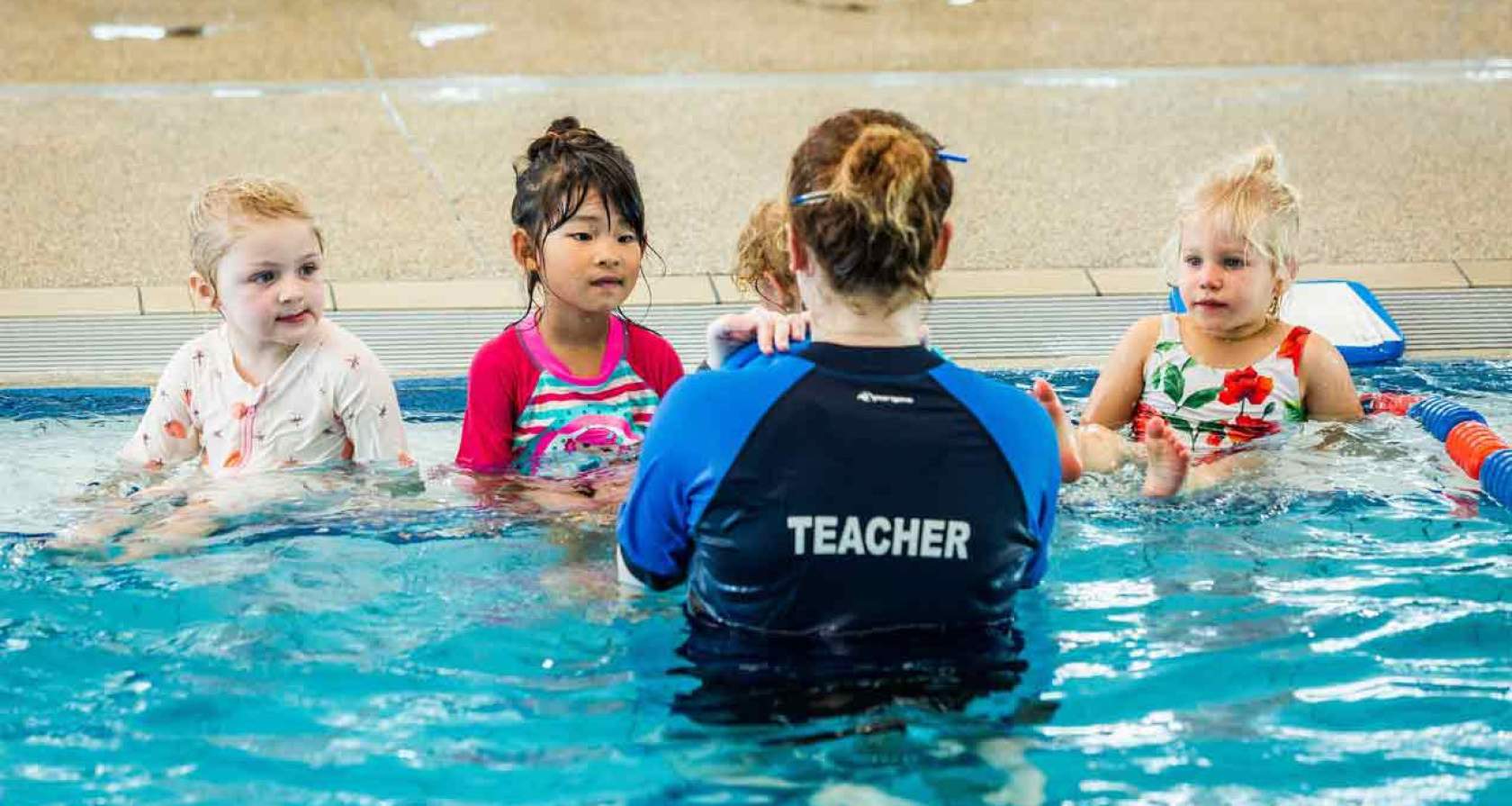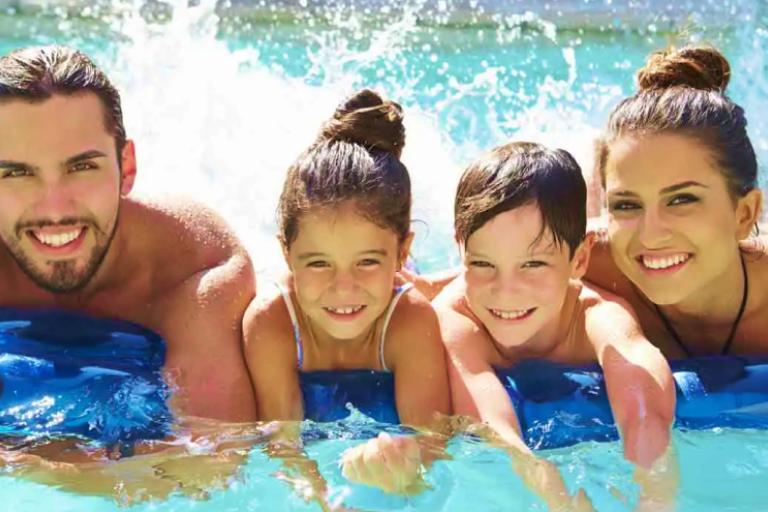Research shows children should continue swimming lessons over winter

By Amy Peden, UNSW Sydney
The weather is getting chilly and the pool is looking less inviting than ever. At this time of year, with cooler temperatures and shorter days, swimming can be the furthest thing from our minds. It’s no wonder during winter many parents pause their child’s swimming lessons.
Many local pools in country areas close during the cooler months, often reopening in spring.
So, does it matter if kids stop swimming lessons over the winter? Here’s what to consider before you pull the plug.
The more time in the water, the better
The first thing to note is that a pause can easily turn into stopping lessons altogether. Or, it can make restarting lessons in summer tricky, as children try to remember skills they haven’t practised in months.
And it’s important to remember drowning risk, particularly for young children, is present 365 days a year.
Almost a third of all drowning deaths of children under five occur in autumn and winter.
Learning to swim is one strategy for parents to reduce a child’s risk of drowning, alongside active supervision, restricting access to water and learning CPR.
However, an estimated 40% of children leave primary school without being able to swim the length of an Olympic swimming pool. Participation in swimming lessons declines significantly after age seven.
That means the younger years represent a valuable time to ensure your child has the skills and knowledge to keep themselves safe in the water.
A 2015 study I co-authored found that, when it comes to children mastering the skill of swimming, the more time in the water the better.
One potential benefit of keeping up with lessons over winter is giving children the opportunity to regularly and continuously hone their water safety skills.
Swimming lessons offer kids other bonuses too, including physical, cognitive and language skill development benefits.
Too many missed swimming lessons
Ceasing swimming lessons in the cooler months may also mean you risk losing your preferred lesson timeslot.
It may even mean you lose your child’s place altogether, in an industry where demand often outstrips supply and waitlists can be long.
Children’s swimming lessons have also been significantly affected by the COVID pandemic.
Research has warned too many kids have missed swimming lessons due to lockdowns, pool closures, swimming teacher shortages and long waitlists.
There are fears this will lead to a generation of Australian children leaving primary school without the basic skills needed to keep them safe and enjoy the water throughout adulthood.
What about a summer intensive?
If you must discontinue swim lessons over winter, consider enrolling your child in a holiday or summer intensive swim course. This is where kids have lessons every day over a week or two. It may give your child the chance to catch up after taking the winter months off.
Given the near record number of drowning fatalities in Australia last financial year, and the disruption to swimming lessons during the COVID-19 pandemic-related lockdowns, it’s important we don’t lose momentum now.
Giving your children every opportunity to learn how to swim is vitally important. It could even save their life one day.
Amy Peden, NHMRC Research Fellow, School of Population Health & co-founder UNSW Beach Safety Research Group, UNSW Sydney
This article is republished from The Conversation under a Creative Commons license. Read the original article.
IMAGE: Peninsula Leisure and Deakin University




